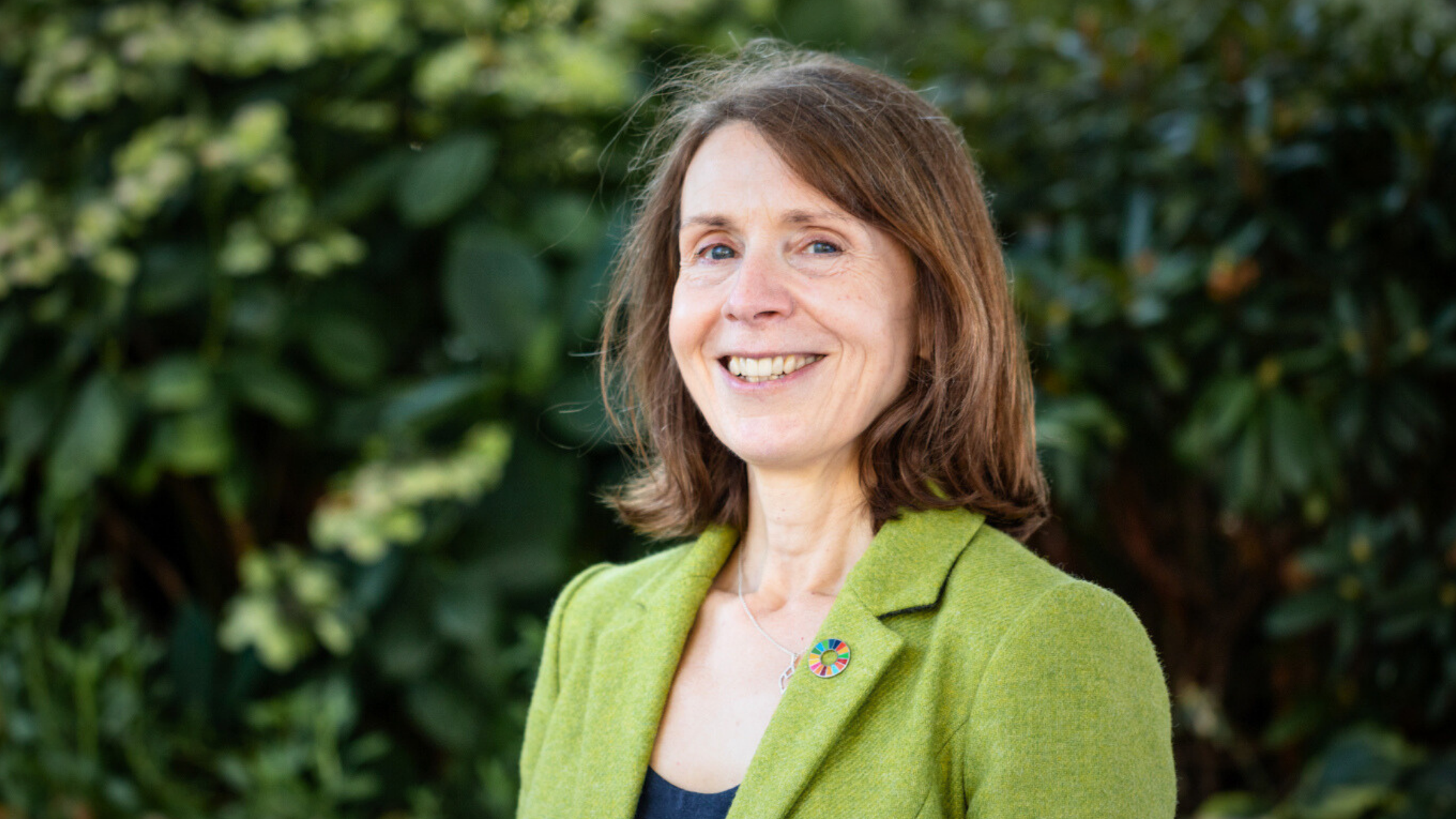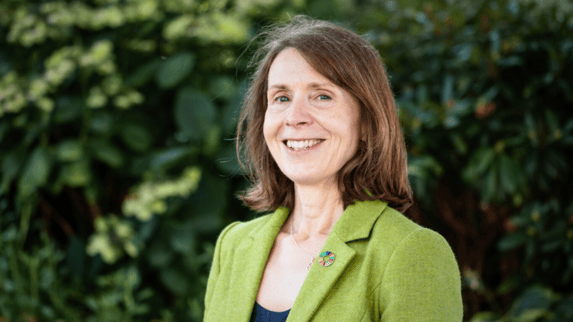"As CEO of a charity, the Business Growth Programme helped me see that growth and profit are just as relevant to purpose-led organisations."
Sue Riddlestone OBE, CEO and Co-founder of Bioregional, shares her experience of the Cranfield Business Growth Programme (BGP).
Nearly 30 years ago I co-founded the award-winning charity and social enterprise Bioregional, offering consultancy on developing more sustainable ways of living through our homes and communities, and products and services.
So, you might wonder, why am I writing about business growth and profit?
Well, I’ve found that it’s just as relevant to purpose-led organisations as it is to the Alan Sugars of this world, and what’s more, we can learn from each other.
The Bioregional story
Bioregional’s purpose is to find ways to help us all live happy, healthy lives within the natural limits of our planet, leaving space for nature to thrive too. We advise and partner with the construction industry and local authorities to create sustainable places to live; and support retailers and their suppliers to offer the sustainable products and services we need.
We know that sustainability needs to be consistent with profitability for our clients. But being a charity, we have perhaps focussed less than we should on our own needs and financial bottom-line!
In 2021, demand for our services went through the roof. The Glasgow climate conference, new policy requirements, and the insistence by customers and staff that companies act on climate and sustainability led to a flurry of enquiries and extra work for us.
We set a target to grow our organisation in response. It seemed simple, and throughout 2021-22 we increased our fee income, with the team working full-on to deliver great quality outputs for our clients. But we also found new, less experienced competitors setting up and beating us to win some of that work, our staff were being approached by head-hunters, and we were still only just breaking even financially.
That was when I discovered the Cranfield Business Growth Programme. The website claimed that on average, businesses on the programme grow revenue by 20% and profits by 41% per year. At the online taster session, the course leaders put the success factors down to understanding three key things:
- Your customers and what they value about you.
- Your team and getting the balance right.
- Your numbers and where your profit lies.
The BGP experience
So I joined the Business Growth Programme, where I found a fun, back-to-school camaraderie.
This course is not an abstract academic exercise, but rather offers best practice approaches from a cohort of advisors with specialist knowledge who help you to apply it to your organisation. It’s a very supportive programme, taking place over a six-month period, with a dedicated advisor who comes into your office to meet your leadership team. They also lead what becomes your little group of four fellow business leaders as you coach, mentor, and learn from each other.
So, how did it go? The principles we all need to be aware of and apply are the same, but every company has different challenges. For us at Bioregional I took away three key lessons which we are applying.
Lesson one: Culture
The biggest takeaway was around our culture. We are an entrepreneurial charity, taking a practical, business-focussed approach to addressing the climate and ecological emergency. I listened to the tutors and the other businesses on the course talk about how they made sure they made a profit. That galvanised my determination to re-state our social enterprise mentality to the team. I knew that we could grow while staying true to our purpose and values, and that we needed to make surpluses as well as impact. There aren’t many organisations like ours, so we need to constantly work to communicate and live by those values both internally and externally.
Conversely, for the other businesses on the course, they needed to think more about their purpose, and take more action on sustainability. The tutors talked about the importance of this not only to futureproof the company, but also to attract and motivate staff. There is also a need to meet the demands of investors and customers who, having signed up to cut the carbon and go sustainable, now require it of their suppliers. This is where Bioregional had a chance to shine and I shared my experiences and our strategies to approach this with the other businesses on the programme.
Lesson two: Team-work
The course validated my colleagues’ judgement that we could improve the way we work. As we are a purpose-led organisation, our team are really dedicated to finding solutions that work for the planet and for our clients. So we always go the extra mile, which is good, but only if it is funded!
The team also expressed how busy they are. So, we are now in the process of introducing more agile ways of working to reduce that feeling of busy-ness by decreasing the number of tasks on the go at any one time.
It is a work in progress, but one we are committed to!
Lesson three: Value
During the programme it became clear that Bioregional had an opportunity to differentiate ourselves even more clearly in this fast-growing market when we worked through identifying our ‘perceived user value’.
We asked the organisations that we work with what they value most about us. Four things came through:
- Our track record of successful implementation of sustainability;
- Our purpose (they know that we have environment and sustainability at heart);
- Our creativity and focus on solutions in the context of a practical, business setting;
- Our proprietary One Planet Living framework, which is holistic and makes it easy to communicate and implement sustainability.
Our communications were already strong, it was just a question of tweaking to weave this even more clearly into the way we talk about Bioregional.
The BGP impact
One year on, and although we are still working through these changes, the impact has been, and continues to be transformative from my perspective. For the first time in six years, we made a proper surplus of £60,000 in 2022-23, which was important for our cashflow to be able to keep growing our organisation, our work, and our impact.
The team continues to make a big impact, supporting over 30 companies with a combined turnover of almost £30bn on their sustainability strategies and products, and with housebuilders on the sustainability of 22,000 new homes. We are also contributing to systemic change through our work on pioneering net zero carbon planning policies with local authorities.
The Business Growth Programme brought no-nonsense fresh thinking and inspiration, and the way it was structured gave me, and the team, the impetus to act in a deeper and faster, more transformational way than we would have done on our own. We were already on the journey, but the course helped us to turbo charge it and gave us some useful tools. I am very grateful for the support we received.
Joining the Business Growth Programme is an investment of time and money, but it’s well worth it, and I highly recommend it!
Download the Business Growth Programme brochure to discover more:






